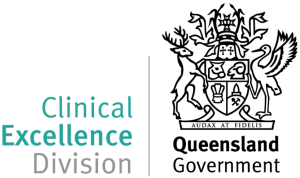How assurance improved a state-wide integrated referral management program.
Client

Industry
Health Services and Hospitals, Public Sector
Our Role
Provide independent assurance and risk advisory services to statewide government hospital and health services
Services
Agile Assurance Reviews, Assurance Framework, Gateway Assurance Reviews, Independent Assurance Advice
Overview.
Improving statewide patient journeys, through the delivery of an digital patient centric referral system.
Clinical Excellence Queensland partners with health services, clinicians and consumers to drive measurable improvements in patient care through its continual pursuit of excellence. This is acheived by identifying, monitoring and promoting improvements in the quality of health services delivered by service providers (both Government Hospital and Health Services and private health facilities, globally and within Queensland), and supporting and facilitating the dissemination of best-practice clinical standards and processes that achieve better outcomes for our patients. The $30M integrated Referral Management Solution The iRMS is designed to automate the manual processes associated with a GP submitting an outpatient referral to a hospital to deliver specialist services for a patient.
The beneficiaries are included in a broad range of stakeholders, including patients, GPs, QH administrators and specialist clinicians. Through use of electronic submission and limitations on data being derived from a Services Directory, the benefits to be realised and measured include:
- Fewer errors in referral submissions measured by the number of requests for resubmission or information generated from a referral
- Reduction in waiting lists through the correct specialist and Hospital being referred in the first instance. Measured through simple counting of waiting lists
- Improved communication by automated responses to submissions – less following up.
- Increased efficiency and financial benefits.
Business need.
A partner to provide modern and independent best practice assurance advice, frameworks and reviews.
The client had a business critical requirement to partner with an assurance organisation who will independently of the programme, PMO and statewide projects undertake the required assurance activities to better ensure success. The assurance partner were required to provide best practice assurance for a federated programme of work across a statewide, geographically dispersed Hospital and Health Services. These service required included:
- Programme assurance plans and framework
- Project assurance plans (aligned to framework)
- Programme and project Gateway assurance reviews
- Programme and project health checks
- Independent risk based assurance advisory
Challenges.
Federated programme delivery approach across central and regional areas with complex and competing BAU priorities.
The programme was delivered under a ‘federated model’, where there was a central Programme Management Office and five component projects, each managed by a dedicated Project Manager. Each of the projects had its own scope, schedule and budget. From a project management functions perspective, each project was required to adhere to government policies for recruiting, reporting, risk management and procurement management. However, each of the projects was at a different stage of the lifecycle, and there standard varied understanding of the whole-of-government Project Management Methodology for implement information and communications technologies. From an assurance perspective, this presented an additional challenge in that expectations of the assurance consultant differed from the Project Managers’ with respect to the need for, and the quality of, project documentation.
Results.
The assurance process assisted the client in delivering five component projects and the integrated solution with the desired functionality within budget.
Gateway Assurance & Health Checks
PM Solutions developed a programme and six project-level assurance plans, undertook Gate 0 Initial, Mid and End reviews at the programme level, while delivering formal gated reviews on each of the component projects. PM Solutions designed and developed all assurance plans aligned with industry best practice and internal governance requirements, planned each review, undertook documentation reviews and interviewed key stakeholders (including executives, suppliers, users and state-wide project delivery teams), and furnished a report to the SRO on completion of each review. PM Solutions also ensured that follow up action was taken on recommendations and was regarded as a trusted advisor.

Independent Assurance Advisory
The approach to assurance was tailored to focus on ensuring that the products from projects within the programme delivered the desired functionality, on time, to budget and against quality criteria. Assurance at the programme-level aimed at ensuring appropriate governance was in place and that the needs of individual projects were being met in a corporate sense. Programme-level assurance always was predicated on ensuring the benefits of the program remained achievable within defined financial and time constraints. The assurance process also ensured that the sum of the deliverables from each project would enable the system objectives to be met and provide the foundation for achieving benefits.
The assurance process assisted the client in delivering five component projects and the integrated solution with the desired functionality, and largely within the revised budget. Without the assurance process, it is unlikely that the programme would have achieve all of its objectives within the defined governance parameters.
